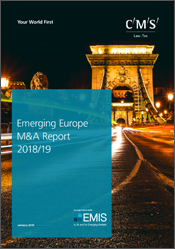BY Richard Summerfield
Chemicals manufacturer Entegris Inc has announced that it is to acquire rival Versum Materials Inc in a $4bn all-stock merger, creating a $9bn company which specialises in advanced materials, specialty gases and microcontamination control.
The deal is expected to close in the second half of 2019, subject to the satisfaction of customary closing conditions, including receipt of US and international regulatory approvals, and stockholder approval at each company.
Under the terms of the agreement, Versum Materials shareholders will get 1.120 shares of Entegris for each share held. Entegris stockholders will own 52.5 percent of the combined company, while Versum Materials stockholders will own 47.5 percent.
The companies expect the merger to generate around $75m in annual cost savings within 12 months of closing.
“We are excited to combine with Versum Materials to create a premier specialty materials company for the semiconductor and other high-tech industries,” said Bertrand Loy, president and chief executive of Entegris. “The combined company will be ideally positioned to more effectively help our customers achieve higher yields and new levels of performance and reliability, and together, we will be well positioned to take advantage of long-term secular semiconductor growth, and to tackle new industry process challenges. I have great respect for the Versum Materials team and look forward to joining forces as we embark on this next chapter and create new value for our stockholders, employees and customers.”
“We could not ask for a better partner in Entegris,” said Guillermo Novo, president and chief executive of Versum Material. “This merger will create greater benefits and growth opportunities than either company could have achieved on its own. It dramatically accelerates our goal of portfolio diversification – creating an end-to-end materials solutions provider across the entire semiconductor manufacturing process. With enhanced global scale and world class technical expertise, we’ll be poised to drive further innovation and support investments across our technology, infrastructure, and additional capabilities – enabling us both to better serve our customers and provide expanded opportunities for our employees.”
News: Chemicals maker Entegris to buy Versum in $4 billion microchip bet



